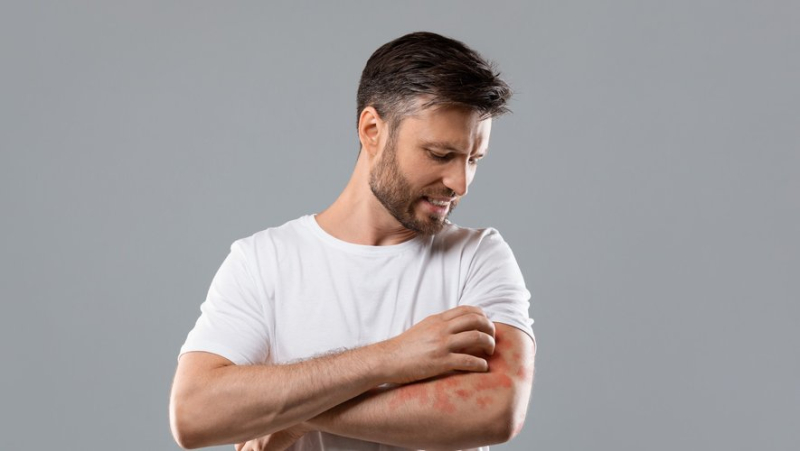Towards the end of psoriasis ? Researchers make a major discovery in the treatment of this incurable disease

Une nouvelle piste prometteuse dans le traitement du psoriasis
Le psoriasis, maladie inflammatoire chronique de la peau touchant 2 à 3 % de la population mondiale, pourrait bientôt bénéficier d'une nouvelle approche thérapeutique. Une équipe de chercheurs de l'Institut Cochin vient de faire une découverte majeure sur le rôle d'une hormone appelée hepcidine. Explications.
Psoriasis is characterized by excessive proliferation of epidermal cells and local inflammation, manifested by red patches covered with scales. Although treatments exist to improve patients' daily lives, the disease remains incurable to date.
A hormone regulating iron
A French study published in the journal Nature Communications, reveals an accumulation of iron in the skin of patients suffering from psoriasis. But also that hepcidin, a hormone regulating iron in the body, was particularly expressed in the skin of patients suffering from severe forms of the disease.
As explained by Carole Peyssonnaux who heads the team Iron and Immunity of the Cochin Institute and research director at Inserm, “hepcidin produced by the epidermis plays a crucial role in the retention of iron in skin cells. Since iron is an essential metal for cell proliferation, this retention promotes cell division and contributes to the recruitment of neutrophils, two characteristics of psoriatic lesions.
Treating other diseases ?
Scientists then developed mouse models (animal experimentation models) to study the role of hepcidin more precisely. The results showed that activating the hepcidin gene induced features of psoriasis, while inactivating it made them disappear.
With these results, the team is now working on developing new drugs that can neutralize hepcidin. These treatments could be used as maintenance therapy after a flare-up or to prevent the disease from recurring during remission phases.
Note: the researchers hope to apply this discovery to other inflammatory skin diseases. Additional studies are underway to explore these possibilities.




